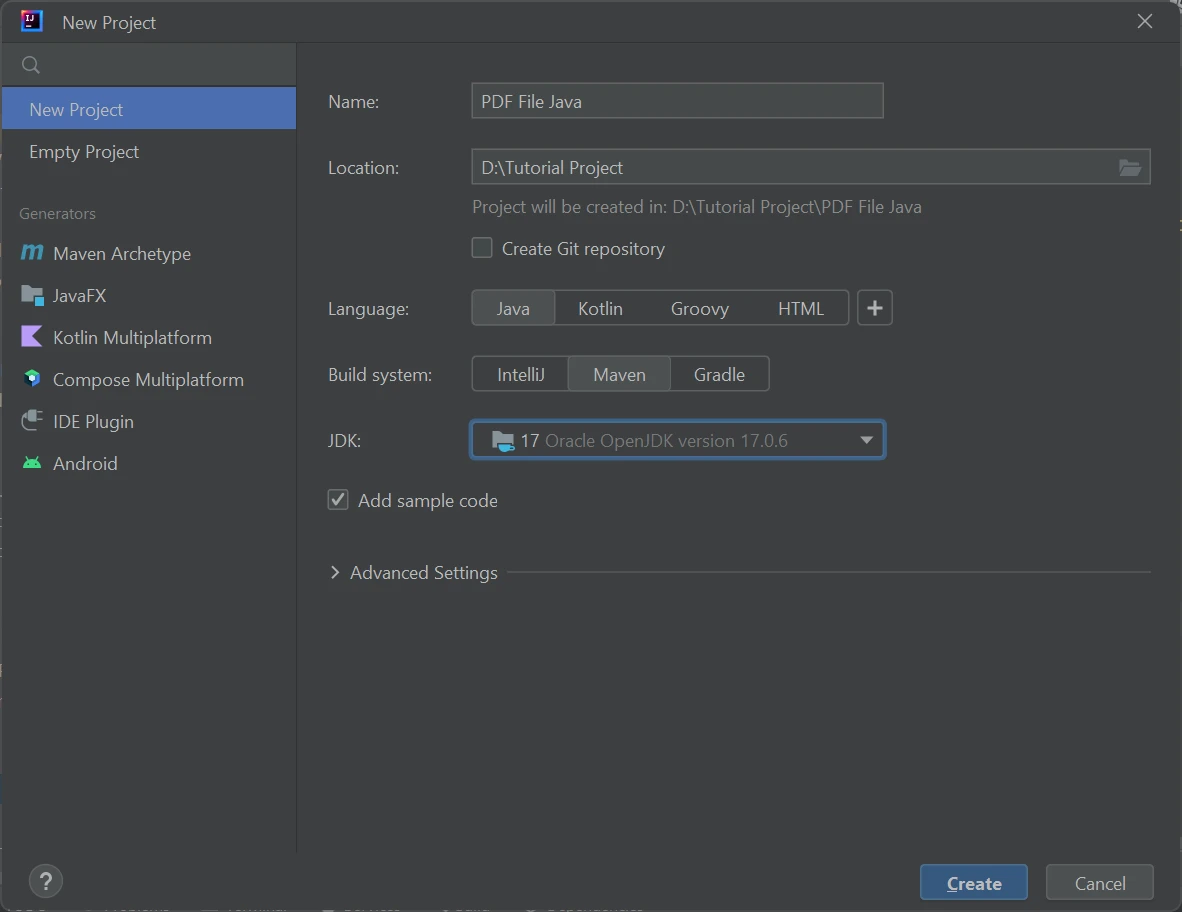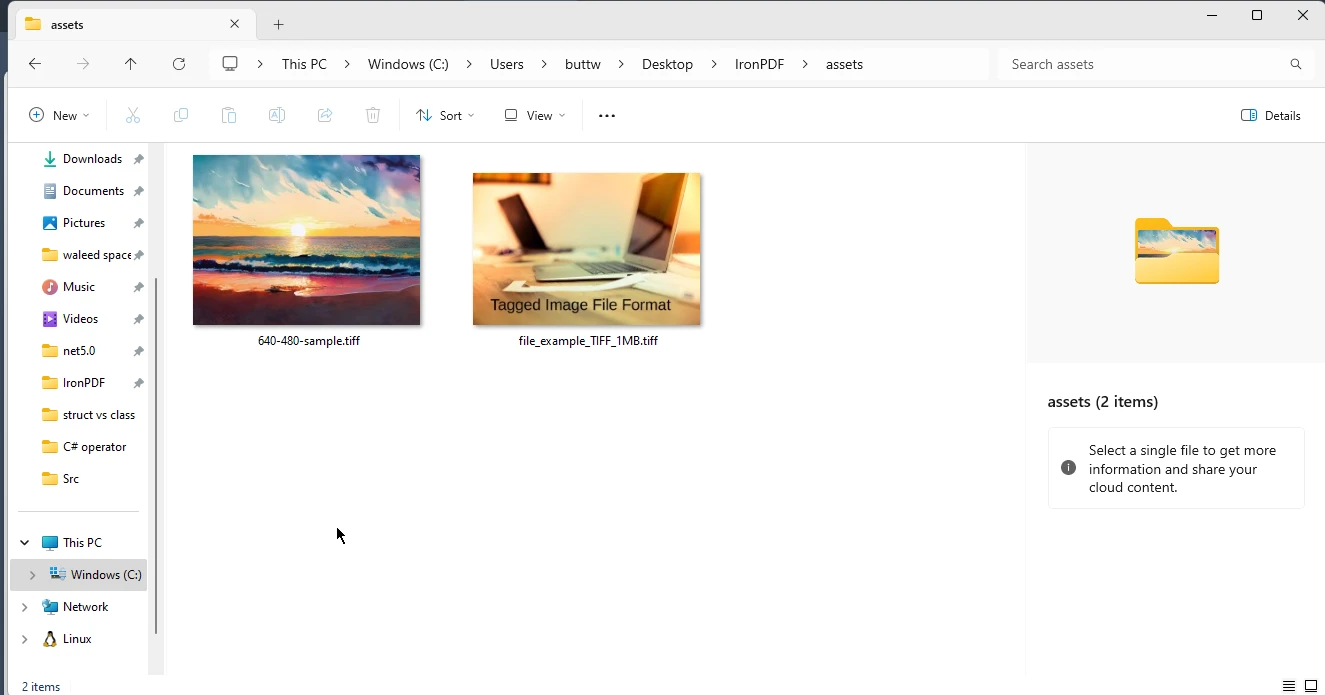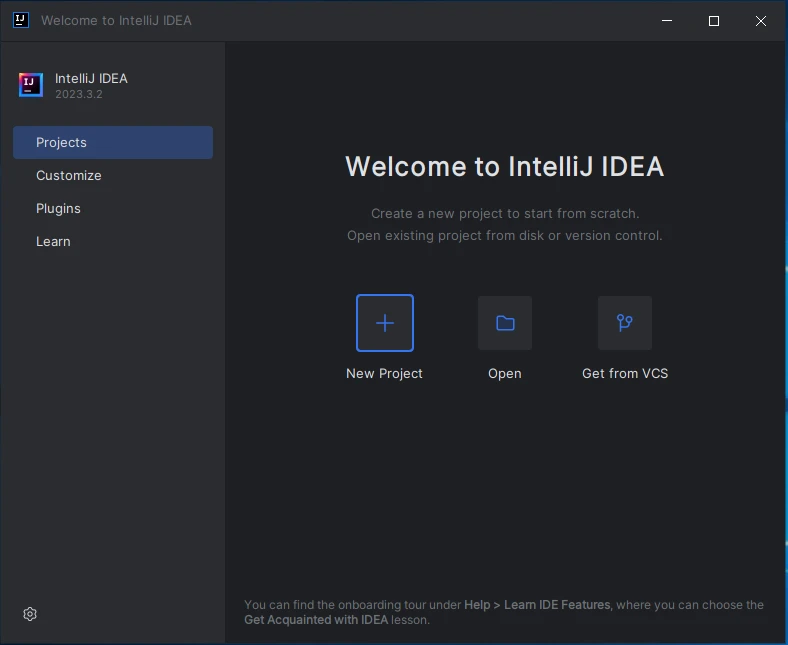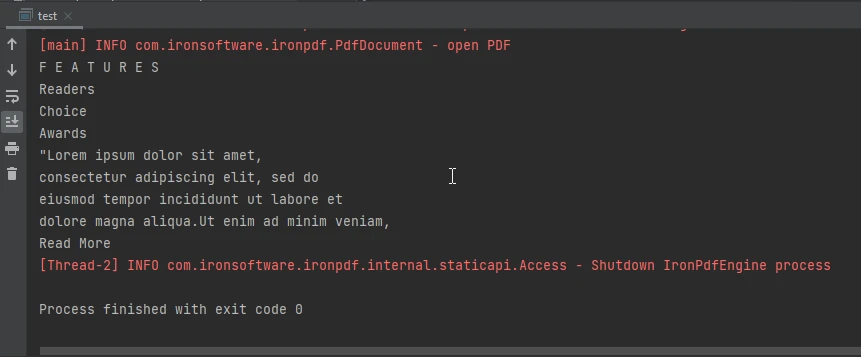How to Create A PDF Document in Java
This article provides a comprehensive guide to working with PDFs in Java, covering key concepts, the best library, and examples.
How to Create PDF Document in Java
- Create or Open a Java Project
- Add Reference to the IronPDF Library
- Write Code to create PDF Documents in Java
- Create PDF files from HTML Files
The Best Java PDF Library
There are multiple PDF libraries available for Java, each with its pros and cons. Some are difficult to use, some are very costly, some do not have enough features, and some lack performance and efficiency.
IronPDF is the ideal library as it is very easy to use and provides a comprehensive set of features, including creating, reading, and editing PDF files in Java with greater efficiency and performance.
Introducing IronPDF for Java
IronPDF for Java Features is a Java PDF library that helps software engineers create, edit, and extract PDF content in Java projects. IronPDF for Java supports many features, such as generating PDFs from HTML, URL, JavaScript, CSS, and various image formats; adding headers and footers with HTML; applying digital signatures; attachments; implementing PDF security and password protection; converting PDFs to PDF/A and PDF/UA standards; and more.
IronPDF supports HTML to PDF conversion, allowing the transformation of web-based content into PDF format.
Create a new Project
Create or open an existing project. This project may be a web application, Android, or desktop application. It will work in any type of project. In this tutorial, a Maven project is recommended to make it simple and understandable.
 Create a Maven project
Create a Maven project
Adding IronPDF to the Demo Project
Add a Maven dependency to your Java project by adding the relevant <dependency> entry in your project's pom.xml file:
<dependency>
<groupId>com.ironpdf</groupId>
<artifactId>ironpdf</artifactId>
<version>[VERSION]</version>
</dependency><dependency>
<groupId>com.ironpdf</groupId>
<artifactId>ironpdf</artifactId>
<version>[VERSION]</version>
</dependency>Save the pom.xml file and build the project. This will install IronPDF in the project, allowing you to utilize its functionalities to create, edit, and manage PDF files.
Create PDF files from HTML String (HTML to PDF)
Let's start generating a PDF in Java easily by using the IronPDF Library. The following sample code demonstrates the HTML String to PDF Conversion.
import com.ironsoftware.ironpdf.PdfDocument;
public class HtmlStringToPdf {
public static void main(String[] args) {
// Define the HTML content to be converted into a PDF
String htmlString = "<h1>This is a Sample PDF File</h1><p>This file is created for PDF File in Java</p>";
// Convert the HTML string into a PDF document
PdfDocument myPdf = PdfDocument.renderHtmlAsPdf(htmlString);
// Save the PDF document to a file
myPdf.saveAs("HtmlToPDF.pdf");
}
}import com.ironsoftware.ironpdf.PdfDocument;
public class HtmlStringToPdf {
public static void main(String[] args) {
// Define the HTML content to be converted into a PDF
String htmlString = "<h1>This is a Sample PDF File</h1><p>This file is created for PDF File in Java</p>";
// Convert the HTML string into a PDF document
PdfDocument myPdf = PdfDocument.renderHtmlAsPdf(htmlString);
// Save the PDF document to a file
myPdf.saveAs("HtmlToPDF.pdf");
}
}The above Java code snippet demonstrates the use of the IronPDF Library that converts an HTML string (htmlString) into a PDF document. The HTML content, containing a title (<h1>) and a paragraph (<p>), is intended for the PDF file.
The code creates a PDF document by rendering the HTML content and then saves the resulting PDF as "HtmlToPDF.pdf". This functionality is useful for dynamically generating PDF documents from HTML content in Java applications, potentially facilitating the conversion of web-based content into a downloadable or shareable PDF format.
 The output PDF file
The output PDF file
Create PDF documents from a URL
This section will create a PDF file from a URL. The following sample code demonstrates the example of URL to PDF Conversion using IronPDF.
import com.ironsoftware.ironpdf.PdfDocument;
import java.io.IOException;
public class UrlToPdf {
public static void main(String[] args) {
try {
// Convert the content from the URL into a PDF document
PdfDocument myPdf = PdfDocument.renderUrlAsPdf("https://elements.envato.com/");
// Save the PDF document to a file
myPdf.saveAs("UrlToPDF.pdf");
} catch (IOException e) {
e.printStackTrace();
}
}
}import com.ironsoftware.ironpdf.PdfDocument;
import java.io.IOException;
public class UrlToPdf {
public static void main(String[] args) {
try {
// Convert the content from the URL into a PDF document
PdfDocument myPdf = PdfDocument.renderUrlAsPdf("https://elements.envato.com/");
// Save the PDF document to a file
myPdf.saveAs("UrlToPDF.pdf");
} catch (IOException e) {
e.printStackTrace();
}
}
}The above Java code snippet utilizes the IronPDF Library to create a PDF document by rendering the content of a specified URL ("https://elements.envato.com/"). This code effectively converts the web content at the given URL into a PDF document.
The resulting PDF is then saved as "UrlToPDF.pdf". Such functionality is valuable for capturing and storing the content of a web page in PDF format, offering a convenient way to preserve and share online information offline.
 The output PDF file from the URL
The output PDF file from the URL
Create a PDF Document from an HTML File
The following source code demonstrates the example of HTML File to PDF Conversion. This will extract content from an HTML file and create a new document from that.
import com.ironsoftware.ironpdf.PdfDocument;
public class HtmlFileToPdf {
public static void main(String[] args) {
// Convert content from the HTML file into a PDF document
PdfDocument myPdf = PdfDocument.renderHtmlFileAsPdf("about.html");
// Save the PDF document to a file
myPdf.saveAs("HtmlFileToPDF.pdf");
}
}import com.ironsoftware.ironpdf.PdfDocument;
public class HtmlFileToPdf {
public static void main(String[] args) {
// Convert content from the HTML file into a PDF document
PdfDocument myPdf = PdfDocument.renderHtmlFileAsPdf("about.html");
// Save the PDF document to a file
myPdf.saveAs("HtmlFileToPDF.pdf");
}
}In the above Java code snippet, IronPDF is used to generate a PDF document by rendering the HTML content stored in a local file named "about.html".
The code essentially converts the content of the HTML file into an instance document. The resulting PDF is then saved as "HtmlFileToPDF.pdf." This functionality is beneficial for scenarios where existing HTML files need to be transformed into PDF documents, providing a practical means of preserving and distributing content in a different format.
IronPDF efficiently adds image files into this PDF file that were present in the HTML File.
 The output PDF file from an HTML file
The output PDF file from an HTML file
The strength of IronPDF lies in its ability to faithfully replicate the visual aspects of a web page, encompassing layout, styles, and dynamic elements. This meticulous rendering ensures that the resulting PDF closely mirrors the original website, making IronPDF an influential tool for diverse tasks.
It proves invaluable for archiving web pages, generating PDF reports from online data, and reliably capturing the visual state of dynamic web content. Developers leveraging IronPDF within their applications can achieve these objectives with precision, offering a robust solution for seamlessly integrating web content into PDF documents.
Conclusion
In conclusion, working with PDFs in Java is efficient and powerful with the integration of IronPDF. This comprehensive guide has explored fundamental PDF concepts, the importance of selecting the right Java PDF library, and practical examples using IronPDF.
Notably, IronPDF stands out for its ease of use, extensive feature set, and robust capabilities, including HTML to PDF conversion and faithful reproduction of webpage elements.
IronPDF's ability to accurately capture the visual representation of web content makes it an invaluable tool for tasks such as working with PDF forms, archiving, report generation, and capturing dynamic web states within Java applications.
Whether creating PDFs from HTML strings, URLs, or HTML files, Working with PDF Forms in Java, IronPDF provides a seamless and reliable solution for developers. It can also be used as a standard Java printing API to print PDF Documents.
IronPDF offers a free trial version and licensing options and is cost-friendly, making it an accessible and budget-friendly choice for developers seeking robust PDF solutions in their Java applications.
Frequently Asked Questions
How can I generate a PDF from an HTML file in Java?
You can use IronPDF to generate a PDF from an HTML file by utilizing the PdfDocument.renderHtmlFileAsPdf method, which transforms the HTML file content into a PDF format.
What makes IronPDF a preferred choice for PDF generation in Java?
IronPDF is preferred for its ease of use, extensive feature set, and high performance, making it an ideal library for generating PDFs from HTML, URLs, and various image formats in Java.
How can I convert a URL into a PDF document using Java?
IronPDF allows you to convert a URL into a PDF document using the PdfDocument.renderUrlAsPdf method, which captures the web content and saves it as a PDF.
Can IronPDF handle dynamic web content when generating PDFs?
Yes, IronPDF accurately captures the visual state of dynamic web content, ensuring the resulting PDFs closely mirror the original web pages, which is essential for tasks like archiving and report generation.
How do I integrate a PDF library like IronPDF into my Java project?
To integrate IronPDF into your Java project, add the Maven dependency in your project's pom.xml file with the appropriate groupId, artifactId, and version details.
What are some key functionalities of IronPDF for Java?
Key functionalities of IronPDF include generating PDFs from HTML, URLs, and image formats, adding headers and footers, applying digital signatures, implementing PDF security, and converting PDFs to formats like PDF/A.
Is IronPDF suitable for converting HTML strings into PDF documents?
Yes, IronPDF is suitable for converting HTML strings into PDF documents using the PdfDocument.renderHtmlAsPdf method, effectively reproducing the web content in PDF format.
What types of projects can benefit from using IronPDF?
IronPDF can be used in various types of Java projects, including web applications, Android apps, and desktop applications, making it versatile across different development environments.
Does IronPDF offer a trial version for developers?
Yes, IronPDF offers a free trial version along with licensing options, providing a cost-effective solution for developers seeking comprehensive PDF capabilities in Java.
Why is IronPDF ideal for HTML to PDF conversion tasks?
IronPDF is ideal for HTML to PDF conversion tasks due to its ability to faithfully replicate the visual aspects of web pages, ensuring that the resulting PDFs mirror the original content accurately.























